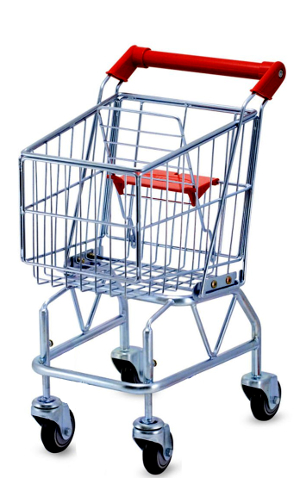New funds for price watch
 The government has put up new money to stop sneaky supermarket pricing tricks.
The government has put up new money to stop sneaky supermarket pricing tricks.
The Albanese Government is intensifying efforts to curb misleading pricing in supermarkets, announcing a $30 million boost for the Australian Competition and Consumer Commission (ACCC).
The ACCC will use this funding to crack down on deceptive pricing practices, particularly in the supermarket sector.
This decision follows accusations that Coles and Woolworths misled consumers by advertising false discounts.
In addition to the ACCC's increased funding, Treasurer Jim Chalmers says he will collaborate with state and territory governments to address issues related to zoning and planning regulations.
The aim is to prevent land banking, where major retailers purchase land without developing it, thus preventing competitors from entering the market.
The Albanese government has claimed that current zoning rules are stifling competition by restricting the ability of new grocery operators to establish themselves.
This announcement builds on recent actions taken by the government and the ACCC to address competition in the supermarket sector, including a new food and grocery code and reporting on price monitoring.
The ACCC has also confirmed that it is pursuing legal action against both Coles and Woolworths.
The allegations centre on the practice of advertising discounts that were “illusory”, as the prices had previously been raised before being discounted again.
“We don’t want to see ordinary Australians, families and pensioners being taken for a ride by the supermarkets, and we’re taking steps to make sure they get a fair go at the checkout,” Prime Minister Anthony Albanese said.
The ACCC's inquiry into supermarket competition will include public hearings with the major supermarkets later this year.
ACCC Chair Gina Cass-Gottlieb has welcomed the additional funding, stating that the resources would enhance the regulator’s ability to investigate and enforce compliance in the retail sector.
Cass-Gottlieb emphasised the importance of ensuring consumers have access to accurate information regarding pricing and value, particularly in light of rising living costs.
This push for greater transparency and accountability in supermarket pricing practices has reignited discussions around the dominance of Coles and Woolworths, which control more than 65 per cent of the Australian grocery market.
Former ACCC Chair Allan Fels has suggested that breaking up these companies could serve as a significant deterrent to price gouging.
However, the Prime Minister rejected this idea, citing concerns about interfering with Australia’s market-based economy.
Some experts, including Fels, remain sceptical that these efforts will lead to lasting change.
He argues that without more radical reforms, such as introducing divestiture powers, unfair pricing practices are likely to persist in the long term.
The ACCC’s inquiry into supermarket practices will continue into next year, and its findings are expected to play a crucial role in shaping future competition policies within the sector.








 Print
Print